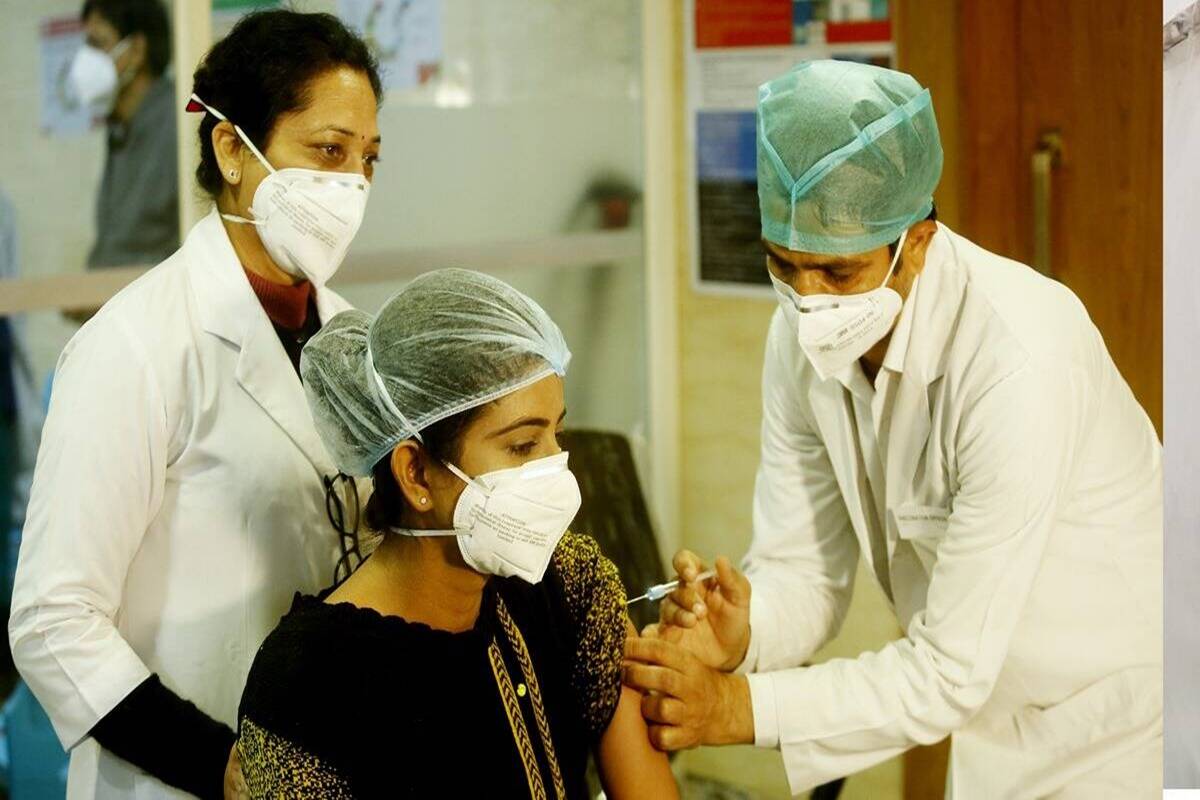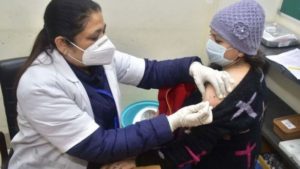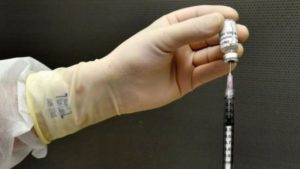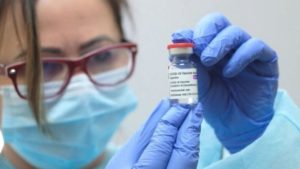
How Safe is the Covid-19 Vaccine?

A vaccination drive is going on in India to protect against Covid-19 Vaccine. People are being given two types of vaccines in India. One is Covishield which was prepared by scientists from AstraZeneca and Oxford University and produced by Serum Institute of India. And the second vaccine is covaxine made by the Indian company Bharat Biotech.
In many other countries including Britain, people are also being vaccinated. In the UK, the vaccines of Oxford-AstraZeneca and Pfizer-BioNtech are being installed.
Where any vaccine is being installed, British regulators have declared these vaccines safe. However, some people have seen minor reactions after taking it.
How to know if a vaccine is safe?
Safety trials are first started in the lab for the vaccine, under which tests and tests are conducted on cells and animals. After this, there are studies on humans.
The principle is that starts at a small level and goes to the next level of testing only when there are no concerns about safety.
What is the role of a trial?

If the safety data of the lab is correct, then scientists can proceed to find out the effect of the vaccine.
Means are then tested on a large group of volunteers. For example, in the case of Pfizer-BioNotech, nearly 40 thousand people were tested. Aadha was vaccinated and Adha was given a placebo jab. Researchers and the participating people were not told which group is which, so that bias could be avoided.
The entire work and conclusions were independently tested and verified.
Trials of the Covid vaccine were conducted at a rapid pace, but the entire procedure was followed.
At the same time, the trial of the Oxford-AstraZeneca Covid Vaccine was stopped for some time for investigation when one participant was killed. This participant was one of the thousands of participants. It was told that the cause of death was not the vaccine, after which the trial was resumed.
Although concerns were initially raised about the lack of data on India’s indigenous cocaine, Dr. Ella, president of Bharat Biotech, the maker of the vaccine, said that out of 26,000, about 24,000 volunteers had participated in the Phase III trial, And by February, the data of how effective the vaccine is, will be available.
Can a vaccine cause side-effects?
The vaccine does not give you any disease. Rather, your body’s immune system teaches you to identify and fight against the infection against which that vaccine has been prepared.
Some people may experience mild symptoms after the vaccine. It is not a disease, but the body’s response to the vaccine.
One in 10 people may have a normal reaction and usually recover within a few days, such as arm pain, headache or fever, chills, fatigue, feeling sick and weak, dizzy head, Feeling pain in the muscles.
Who approves the vaccine or treatment?
In India, a vaccine is approved only when, based on the facts, the Drug Controller General of India (DCGI) decides that the vaccine is safe and effective for use.
Similarly, there are regulators in other countries that allow the use of the vaccine. For example, in Britain, a vaccine is approved after the approval of MHRA.
The effects of the vaccine are monitored even after approval, to ensure that there are no further side effects or long-term risks. After this, the governments decide which people are to be given the vaccine first.
What does the covid vaccine contain?
The Pfizer-BioNotech vaccine (and Moderna) uses certain genetic codes for immune response and is called the mRNA vaccine.
It does not make changes in human cells but instructs the body to make immunity against Covid.
The Oxford-AstraZeneca vaccine uses a virus that causes no harm and looks similar to the Covid virus.
The vaccine sometimes contains other elements such as aluminum, which make the vaccine stable or more effective.
What about vaccine allergy?
In very few cases allergic reactions occur. Information about the ingredients used to store the vaccine that is approved for use is also available.
NHRA has reported that some of the people who were given the Pfizer-BioNotech vaccine have seen severe allergic reactions. He says that people who have a history of allergic reactions to any of the ingredients in this vaccine should not take this vaccine as a precaution.
It should also be kept in mind that anti-vaccine stories are being spread through social media. This post is not based on any scientific advice (or many of these facts are incorrect).
What if already covid?

If someone has had a corona infection before, they can still be given the vaccine. This is because natural immunity cannot last long and vaccines can provide more protection.
It is said that giving vaccines to those who have been “long” Covid is not a concern. But those who are currently infected with the virus should be given the vaccine only after recovering.
Do they contain animal products or alcohol?
Some vaccines, such as the Shiggles vaccine and the children’s nasal flu vaccine, contain pig fat.
Pfizer, Moderna, and AstraZeneca’s covid vaccine does not contain pig fat or any other animal products. The British Islamic Medical Association says it contains negligible amounts of alcohol – no more than the amount used in bread.
Do I need to think if everyone gets vaccinated?

There is scientific evidence that vaccination is the best protection against serious infections. A covid-19 vaccine can save people from getting very sick.
However, it is not clear how much protection the vaccine provides in terms of preventing people from spreading Covid-19. If the vaccine can do this well then the disease can be prevented by applying the vaccine to enough people.
Also read: #Shweta: Shweta your mic is on



